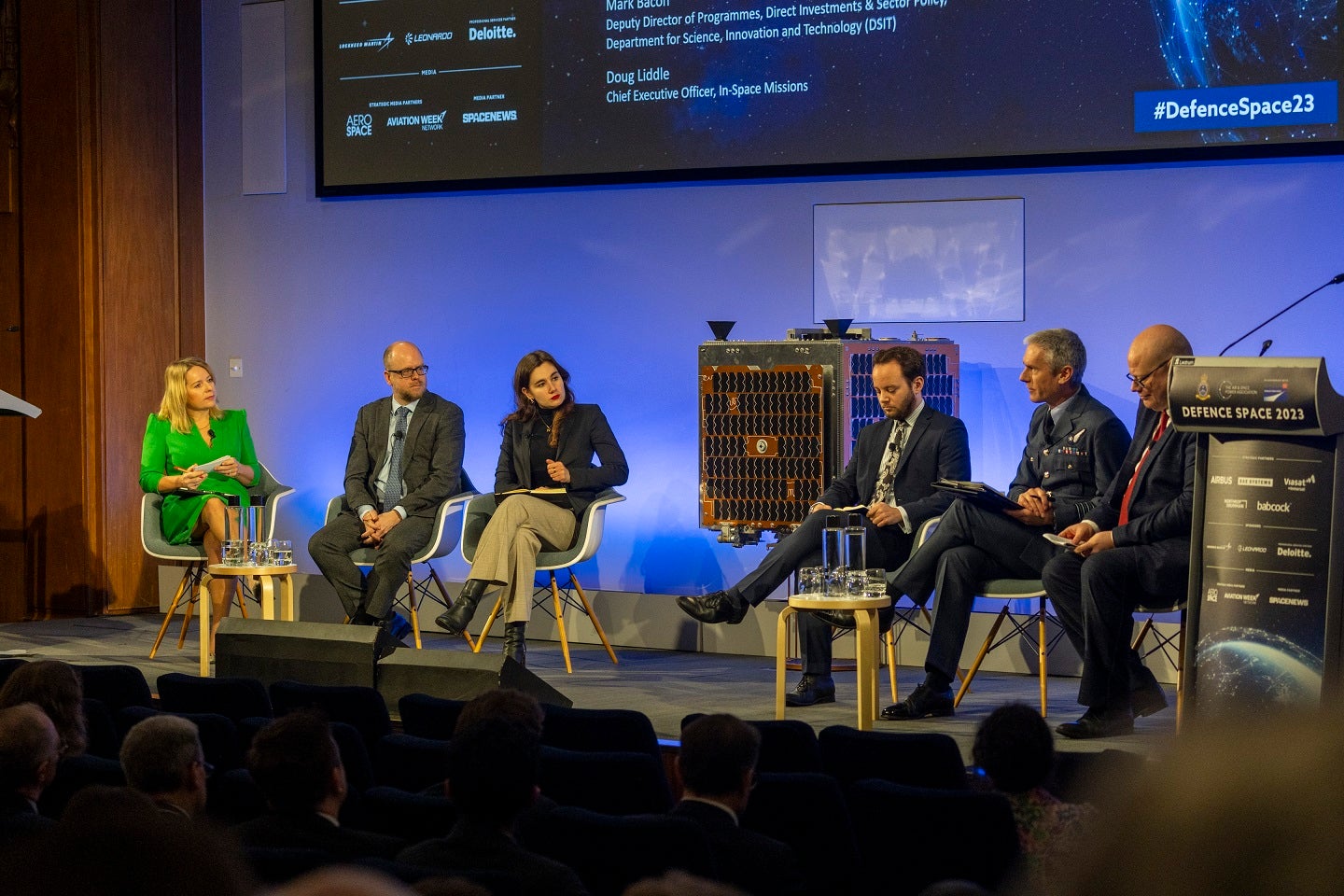
In a “Delivering the Space Strategy Together” session at the Defence Space Conference 2023, key figures from government, industry, and academia converged to illuminate the efforts shaping the UK’s trajectory as a space nation.
The session unveiled insights from officials, emphasising the importance of unity in achieving the National Space Strategy’s goals.
Space in the UK is evolving into a strategic, multi-faceted initiative, blending the realms of science, technology, defence, regulation, trade, and diplomacy. The inaugural National Space Strategy aims to position the UK as a global strength. The focal point of the conference’s first session was to explain the cross-departmental dynamics and responsibilities necessary for the strategy’s realisation.
In 2020, the UK’s announcement of increased investment in capabilities and establishment of a Space Command signalled a positive move for the country’s space industry. However, concerns arose about the need for a comprehensive, long-term roadmap for developing domestic space system capabilities.
The UK space command was set up in April 2021 as a cross-branch unit for operations, workforce generation and capability development, outlined in GlobalData’s intelligence on the UK’s defence market.
The panel comprised representatives from key government departments, including the Department for Science, Innovation and Technology, the Ministry of Defence (MoD), and the Department for Business and Trade. Adding academic and industry perspectives were Juliana Seuss, research analyst and policy lead from RUSI, and Doug Liddle, CEO of In-Space Missions, a component of BAE Systems.
Doug Liddle emphasised the significance of proactive collaboration, stating, “Working with Government, not waiting for it,” underlining the role of industry-government synergy in cost savings.
Group Captain Dave Keighley, assistant head for Strategy and Operations in the UK MoD Space Policy Team, brought attention to the evolving threat landscape. He highlighted the widespread jamming incidents across Europe since February 2022, particularly in Baltic states, post the Ukraine invasion.
Keighley expressed concern and asserted the need for vigilance against potential disruptions from countries like China. He emphasised, “The UK can’t do it alone; allies and partners are critical to what we do.”
Joshua Broom, Head of Space at the UK Department for Business and Trade, disclosed ongoing efforts to streamline civil and defence investments in UK space. Acknowledging progress, Broom stressed the necessity to intensify these endeavours.
Juliana Seuss provided a global perspective, noting China’s consistent development since the 1990s. However, she pointed out a critical gap—China and Russia lack the strength of a private sector derived from a Western alliance, highlighting the unique advantage held by Western partners.
Since the launch of Sputnik 1 in 1957, rival superpowers have actively developed militarisation of Earth’s orbit. Satellites, crucial for communication and reconnaissance, have prompted the development of anti-satellite weapons (ASATs) by nations like Russia, China, and India.
As the Defence Space Conference 2023 unfolds, these insights lay the groundwork for a collaborative and strategic approach, affirming the UK’s commitment to becoming a player in space systems.




